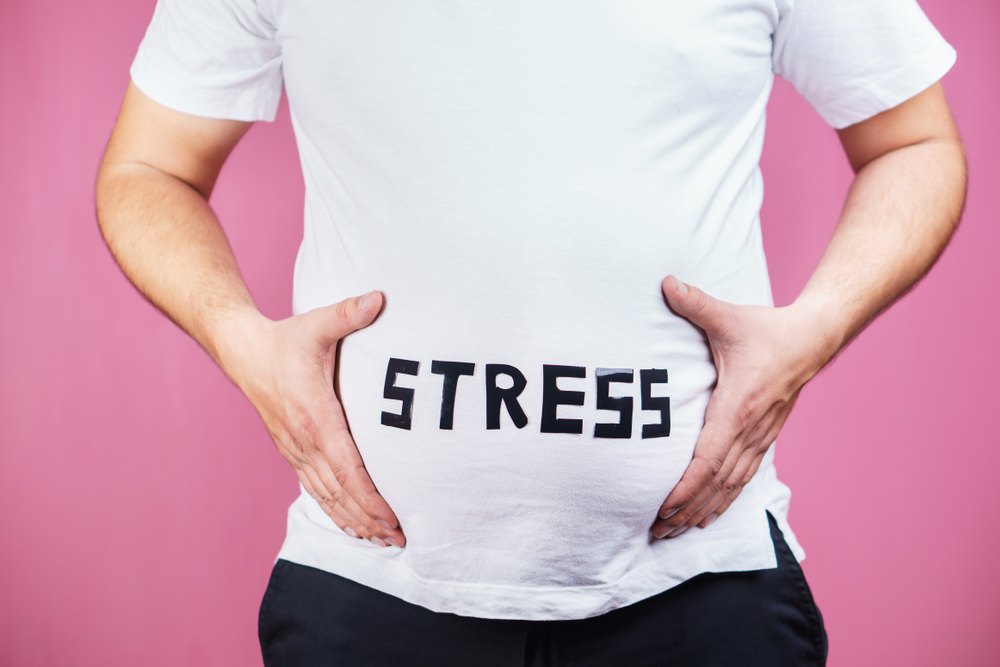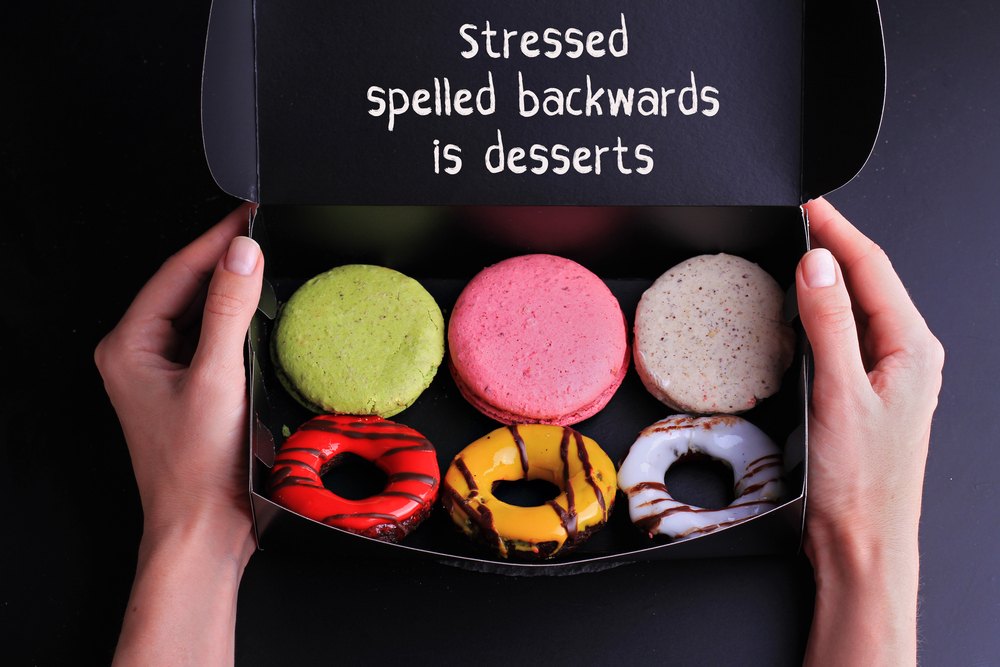Is stress sending you straight to the bottom of a bag of chips?
For many of us, eating based solely on hunger is a rare occurrence. Especially when you’re stressed, eating food that makes you ‘feel better’ might leave your body feeling worse in the long run.
Let’s address stress to weigh less!
What stress does to your body
Stress is a normal reaction to everyday problems. From backaches to headaches to feeling overwhelmed or irritable, stress takes a toll on our mental and physical health. You feel these effects of stress right away. Chronic stress, however, can negatively affect both psychological and physical health.

Cortisol, a stress hormone released by the adrenal glands, increases in response to a threat, in this case, stress. Once the threat has subsided, cortisol levels return to normal, your adrenaline high wears off and your blood sugar spike drops.
But if stress is always present, you can experience an overexposure to cortisol which is a problem since cortisol is also a significant appetite stimulant.
This is why so many people respond to stress by going for “comfort food”.
Cortisol and sugar cravings
Sugar supplies your body with the quick energy it thinks it needs, it’s often the first thing you reach for when you’re stressed. The downside is that your body stores sugar after stressful situations, mainly in the form of abdominal fat, which can be particularly hard to shed.
And so, the vicious cycle starts; get stressed, release cortisol, gain weight, crave more sugar, eat more sugar, gain more weight.


• Less exercise and sleep
Long hours of commuting and sitting behind a desk can leave little to no time for physical activities. Stress can also deplete the energy levels and cause you to engage in less physical activity.
You might also notice late night binge-watching causing you to wake up late and still feel tired. Disrupted sleep itself can contribute to weight gain.
Break the cycle of stress and weight gain
Yes, it’s a vicious cycle but these steps can help short-circuit the cycle.
1. Make exercise your priority: Whether you go for a walk during your lunch break or hit the gym after work, incorporate regular exercise into your routine.
2. Eat healthier comfort food: Eat smaller quantities of craved foods and eat relatively healthier comfort foods, such as air-popped popcorn. Make sure to stock your pantry with these options.
3. Drink more water: It’s easy to confuse thirst for hunger. It helps promote feelings of fullness and reduce hunger. Next time you feel hungry, drink some water first.
4. Practice mindful eating: Focus on what you pick to eat and what you’re eating. Waiting for some time before indulging in a craving in the hope that it will pass (and most likely, it will), also helps reduce unhealthy choices.
5. Try simple stress-relievers: Distract yourself with other activities, such as going for a walk, or taking a bath. Doing so can reduce your cortisol levels, helping you manage your weight.
If your stress or stress-related weight gain is causing you distress or making it unmanageable to fulfill daily responsibilities, it may be time to seek professional health.
*Content from WoW team






